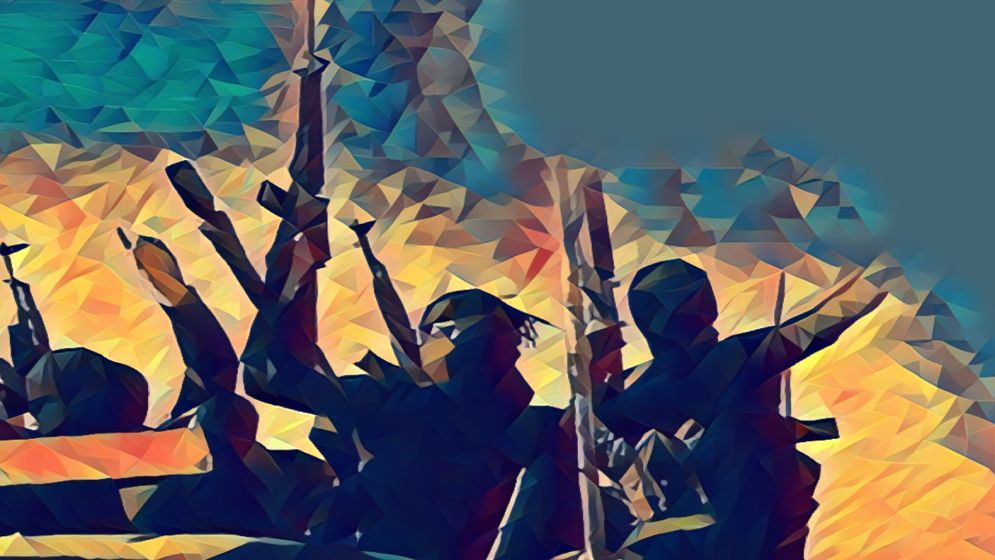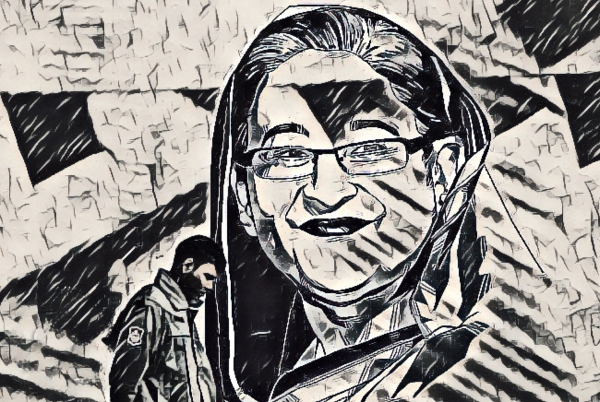The politics of terror: How Hasina regime has shaped the terrorism narrative to score some political points

Over the past 15 years, a climate of fear around terrorism has become deeply ingrained in Bangladesh’s public consciousness.
The previous government frequently warned that extremism would inevitably rise in the absence of their leadership, casting themselves as the only bulwark against the looming threat of terrorism.
To cement this narrative, a series of so-called terrorist organizations were highlighted, even though no solid intelligence evidence ever emerged to substantiate their existence or activities.
In moments of political instability or growing public dissatisfaction, these groups seemed to materialize out of thin air.
New terrorist incidents or organizations would conveniently emerge, bolstering the government’s argument that only their leadership could prevent national chaos.
This strategy proved effective: it solidified public support, justified increasingly repressive measures, and garnered international attention—particularly from Western powers—who, convinced of the threat, supported the government’s stance on counterterrorism.
The irony, however, is that some media outlets in Bangladesh were complicit in this manufactured narrative. Instead of challenging the government's claims, a few prominent news organizations inadvertently helped to perpetuate them.
A recent Facebook post by journalist Muktadir Rashid, published by Bangla Outlook, sheds light on this troubling dynamic.
Rashid recounts a conversation with Monirul Islam, the former head of Bangladesh’s police Special Branch, in which Islam admits that the name “Ansarullah Bangla Team,” one of the most notorious alleged terrorist organizations, was essentially a media invention.
Islam revealed that the name was drawn directly from the press, with no effort to verify its authenticity, and yet it continued to be repeated across major news outlets.
This phenomenon is not isolated. In an interview with Face the People, Mufti Jasim Uddin Rahmani, a prominent figure wrongly accused of leading this fabricated group, described how he was repeatedly labeled the head of the Ansarullah Bangla Team despite having asked for evidence from the media.
His requests were ignored, and the claim was spread without scrutiny. Such portrayals fueled public fear, reinforced the government’s image as a defender against terrorism, and helped secure international backing for its policies.
Yet, despite the widespread nature of this manipulation, the public remains largely unaware of the profound social consequences.

Convoluted narrative and misguided
portrayal
The problem extends beyond fabricated groups to broader portrayals of Islam and Islamic practices in the media.
The tendency to equate "jihad" with terrorism not only misrepresents Islamic teachings but also exacerbates Islamophobia, cultivating a climate of mistrust and fear toward Muslim communities.
These portrayals distort religious beliefs, perpetuate dangerous stereotypes, and further entrench division.
In Bangladesh, as elsewhere, the media has a vital role to play in ensuring that the public receives accurate, well-researched information.
When media outlets uncritically repeat government narratives, especially those rooted in fear, they contribute to a cycle of misinformation with far-reaching implications.
The public deserves better than this. Only by demanding accountability from both the government and the press can we hope to break free from the fabricated fear that has haunted this nation for so long.
The current interim government, committed to democratic reforms, must take decisive action to dismantle the harmful narratives that have taken root in recent years.
Achieving meaningful progress will require practical steps to reshape public perception and address the underlying factors fueling extremist rhetoric.
While media freedom is fundamental to any democracy, it must be accompanied by a robust system of checks and balances.
Unchecked media, devoid of accountability, can easily devolve into fear mongering, as evidenced by the spread of certain terrorism narratives in Bangladesh.
A critical reexamination of past incidents is also essential; we must scrutinize their origins and details to determine whether they were truly acts of terrorism or politically motivated fabrications.
Too many such events have gone unquestioned, leaving the public confused about where politics ends and security concerns begin.

A need for change
There is also an urgent need to address the cultural understanding of religious practices. Too often, expressions of religious identity are misinterpreted and hastily labeled as signs of extremism, even when they stem from deeply rooted social and spiritual beliefs.
To counter this, a nuanced and dynamic approach to the propagation of Islamic values is essential, with religious leaders playing a central role in fostering understanding and tolerance.
Unfortunately, the critical role that religious leaders can and should play as a pressure group to influence government policies is frequently overlooked.
Beyond mere advocacy, these leaders must cultivate a sense of responsibility among their followers, encouraging mutual respect between religious communities and the wider society.
This is particularly crucial in a country like Bangladesh, where religious communities are integral to the social fabric.
By fostering this mutual respect, we can strengthen social cohesion and counter both the misrepresentations of religious practices and the fabricated terrorism narratives that continue to divide the nation.
Society also shares a responsibility in this matter. Instead of reacting impulsively to every report of terrorism, individuals should engage in critical thinking and refrain from drawing conclusions based solely on fear.
A culture of inquiry and discernment must replace the reflexive acceptance of any narrative without question.
It’s essential for people to remember the value of respecting diverse religious beliefs, irrespective of their own background, and to resist allowing fear or media-driven narratives to undermine this respect.
Embracing religious diversity is key to preserving social cohesion and fostering trust among different communities. Most importantly, this mindset would help prevent the spread or entrenchment of fabricated narratives around terrorism and related activities.
—-
Mahtab Uddin Chowdhury is an independent researcher specialising in South Asian politics, local governance and media freedom.

